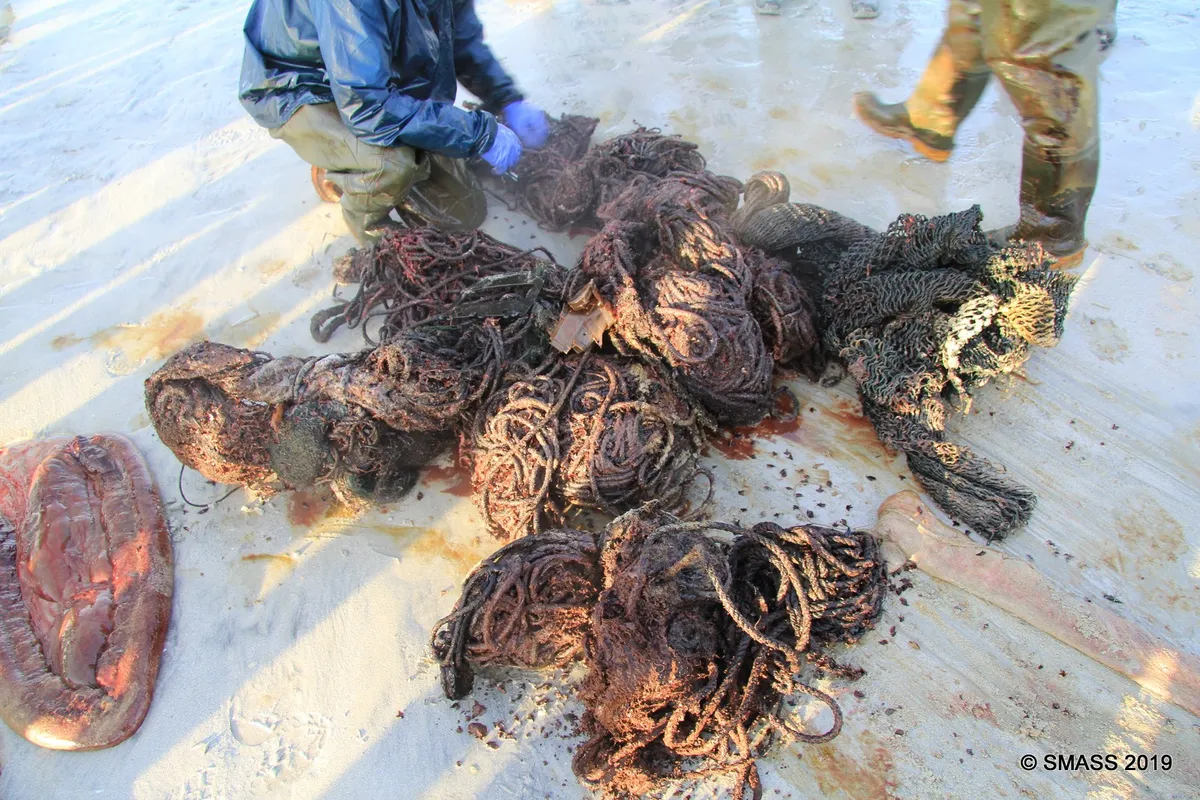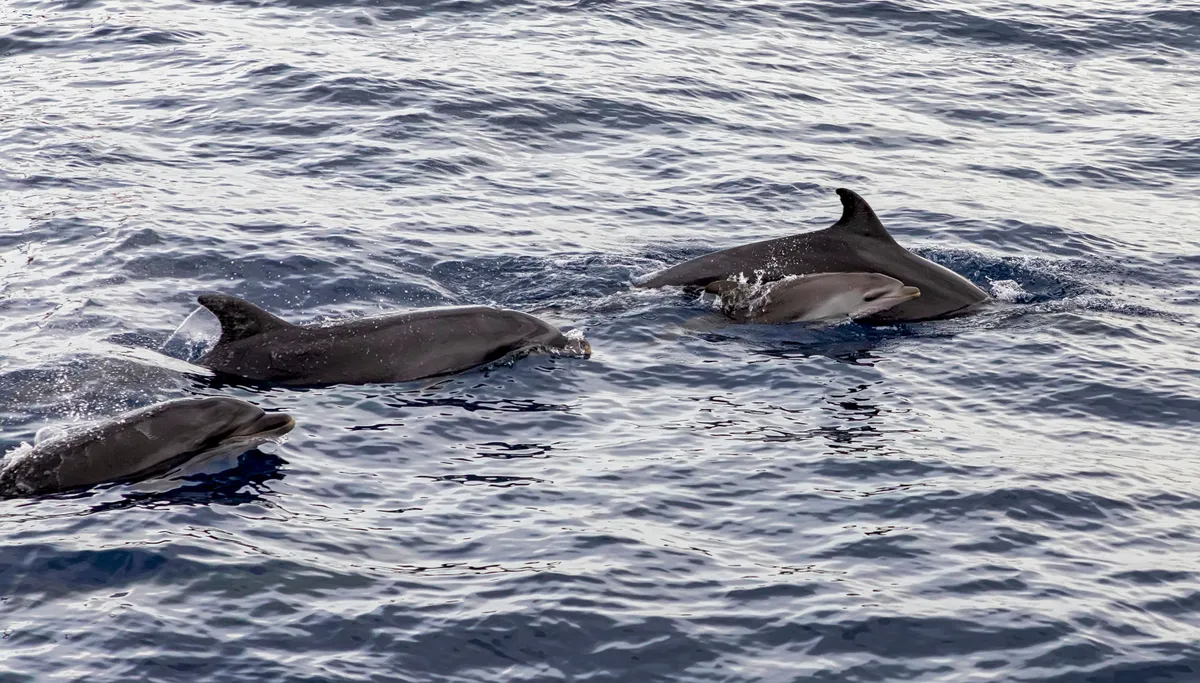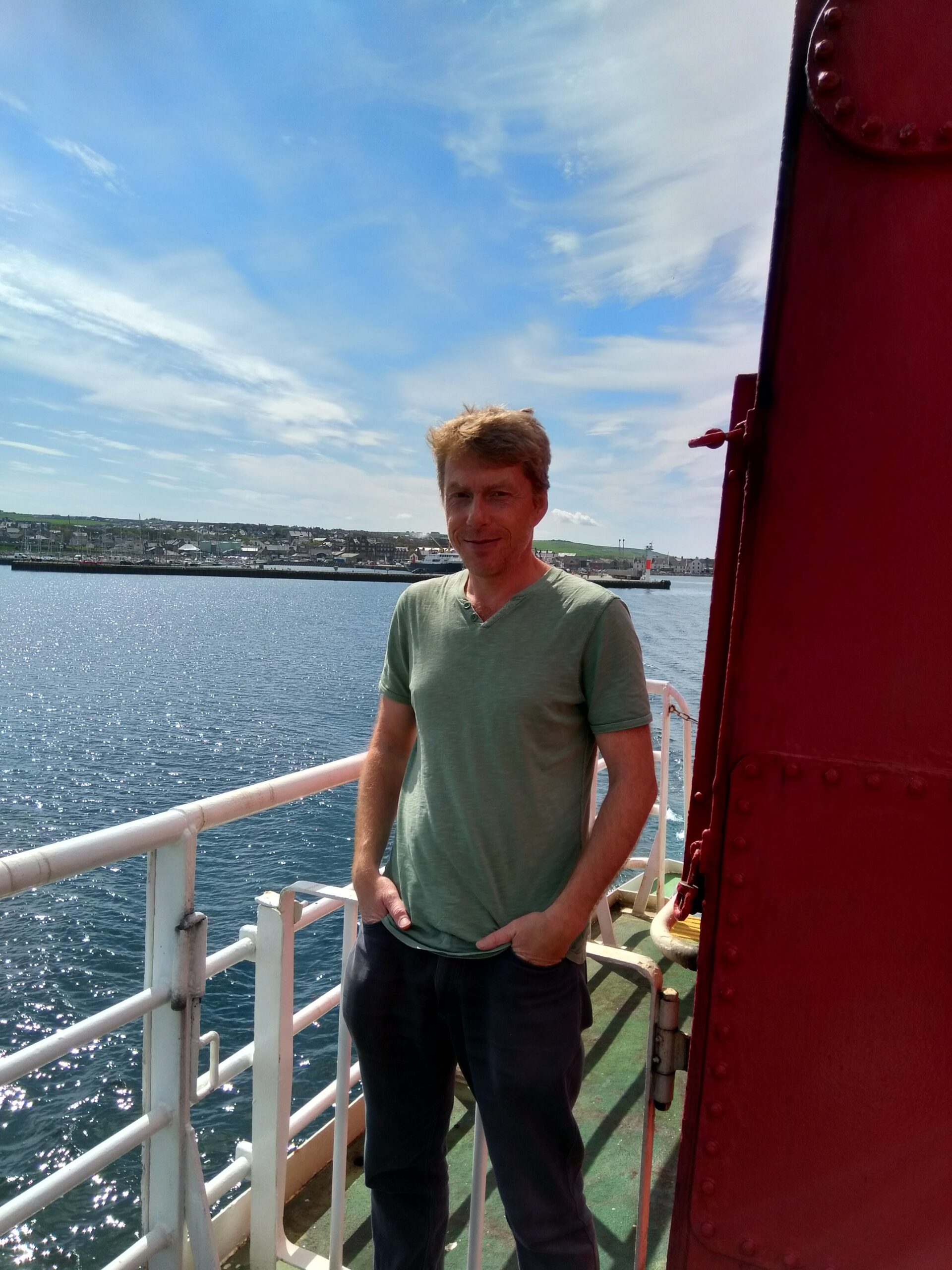A post-mortem of the whale found a compacted mass that included cod ends from trawler nets, mussel lines, creel ropes and tangle lines along with plastic cups in the whale’s stomach.
The whale was stranded alive on Sheileboist beach, near the Sound of Taransay, eight miles southwest of the village of Tarbert. The waters off Harris have a huge tidal range and it is thought the whale was marooned by a retreating tide.
Marine scientists described the contents of the whale’s stomach as ‘horrific’ but were unable to say if the marine debris contributed directly to the animal’s death. ‘It is certainly plausible that this amount of debris was a factor in its live stranding but we actually couldn't find evidence that this had impacted or obstructed the intestines,’ said Andrew Brownlow, of the Scottish Marine Animal Stranding Scheme. ‘But there is very little doubt it would been uncomfortable. This amount of plastic in the stomach is horrific and must have compromised its digestion.’
Brownlow believes the animal may have mistaken the plastic for food. "Sperm whales feed on squid and they feed by hoovering up the seabed in subterranean canyons. It’s quite possible their echolocation told them the plastic was squid – it can resemble them in size and shape. This sperm whale has essentially sampled the seabed for us and shown how much plastic and rubbish is there."
The sub-adult male was buried in a hole dug on the beach, which is located at the centre of the Outer Hebrides’ most popular tourist destination. "This serves to demonstrate yet again the hazards that marine litter and lost or discarded fishing gear can cause to marine life,’ said Brownlow. ‘It’s easy to blame fishermen but a lot of fishermen are doing brilliant things to clean up the seas. We are all culpable. We all need to think about what impact we have on the marine environment. If we help on a beach clean – if we all take just one piece of plastic off a beach, that is one piece less to end up in the stomach of a marine animal."

Strandings of whales and dolphins are a significant and regular occurrence, in both the Outer Hebrides and along the wider Scottish coastline. According to the Scottish Marine Animal Strandings Scheme, more than 930 cases were reported in 2018, compared with 204 in 2009. The organisation says the increase was most likely the result of better reporting and recording of strandings.
Up to 23 species of whale, porpoise and dolphin – more than a quarter of the world’s 89 known cetacean species – either reside or pass through the waters off the west coast of Scotland, and many of these are frequently spotted from the coastline of the Outer Hebrides.

Several Marine Protected Areas exist around the Outer Hebrides but Hebridean waters are increasingly busy, nosy and polluted and the Hebridean Whale and Dolphin Trust says that 20% of Hebridean minke whales have entanglement scars. Fishing gear can involve lines up to 100km long, baited with hooks, or thousands of rope lines connected to traps on the ocean floor. This can become a deadly labyrinth for whales that swim through them.
In late summer and early autumn, almost 100 Cuvier’s beaked whales were stranded in Harris, neighbouring North UIst and along coasts of Argyll further south. Some experts suggested that the mass strandings were linked to naval sonar activity. Pilot whales, with their propensity to act and swim in unison, have been particularly vulnerable to strandings.
What to do if you spot a beached or stranded cetacean
Sightings of beached or stranded cetaceans should be reported to strandings@sruc.ac.uk or call 07979 245893 or 01463 243030.

